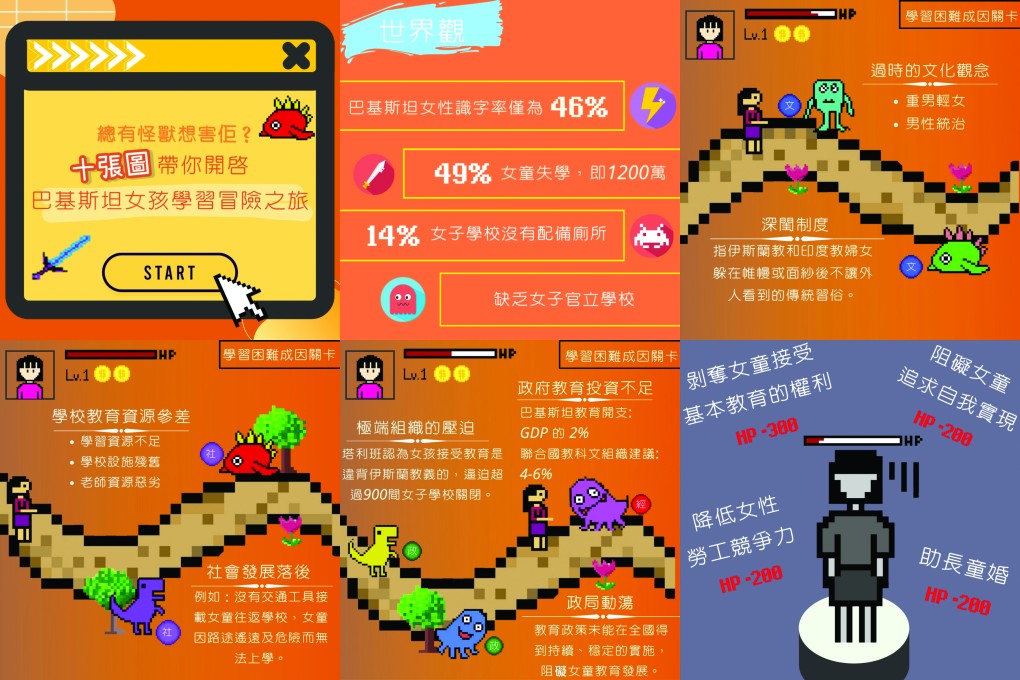Hong Kong Students Stand Up for Girls’ Rights
CityU’s Department of Asian and International Studies organised the annual “Girls Get Equal” Youth Conference, seeking to highlight global girls’ issues and strengthen ties across university departments and with local secondary schools

[Sponsored Article]
The literacy rate for girls in Pakistan is just 46%, and 12 million girls there are not registered at schools. Educational attainment for girls is held back by a number of factors, including a lack of educational resources, poor transportation, patriarchal and religious norms, and political turbulence.
Children living in underprivileged countries, particularly girls, encounter significant obstacles in their lives. To encourage young people to learn about international affairs and foster a sense of global citizenship, CityU’s Department of Asian and International Studies (AIS) jointly organises the annual “Girls Get Equal” Youth Conference with Plan International Hong Kong.
The Battle for Gender Equality
Now in its sixth year, the event continues to serve as a platform for local young people to meet, reflect and exchange ideas on girls’ situations in low-income countries. “We expect to see conference participants engaging with girls’ rights going forward in their capacity as citizens, researchers and activists,” notes Dr Justin ROBERTSON, Associate Professor at AIS. “These social efforts should help build a new movement wherein girls become more powerful forces for change in their communities.”
The programme recruited 44 CityU students and secondary school students. These students joined three online training workshops from January to March 2021, in which they gained an understanding of girls’ issues in developing countries and learnt desk research, public speaking and social media campaigning skills from speakers from the host organisations, representatives from social media enterprises and past participants.
Facilitators were assigned to provide participants with guidance throughout the programme. Equipped with foundational knowledge, students then teamed up to investigate one of the many global girls’ issues, such as menstrual hygiene; early marriage; teen pregnancy; female genital mutilation; trafficking of girls; and the impacts of COVID-19 on girls’ rights.
Then came the virtual conference held on 27 March 2021. Here, students showcased their findings and recommendations before the expert judges, their principals, teachers and parents. It commenced with opening remarks by the Chief Executive Officer of Plan International Hong Kong, Dr Kanie SIU, and Head of AIS, Professor Mark THOMPSON. A keynote speech by Ms Rachel KWONG, a barrister-at-law, followed, inspiring youth participants to speak out in support of gender equalities and to believe in youth’s power by sharing personal stories and experiences.
Creative Projects Speak for Girls
The secondary and university teams then took turns to present. The judges were impressed by their persuasive presentations and their ability to adopt critical but solution-oriented approaches in their research.
The barriers to girl’s education in Pakistan described at the beginning of the article formed part of the research conducted by students from Queen Elizabeth School. They were selected as the best presentation team of the secondary school section. Their social media campaign, which made an analogy of girls’ hardship to fighting monsters in an adventure game, won them the Youth Power – Best Campaign Award, conferred by a judging panel led by Anita LAM, Head of Branding for Facebook Greater China. LIANG Anqi from Heung To Middle School was named the best presenter, and her team scooped the Creative Team Award.
Meanwhile, the team arguing that periods do not stop for pandemics won the best presentation team of the university section. Apart from giving an overview of the issue, the team also suggested that by providing girls with five reusable menstrual pads, girls will be more empowered to study and overcome the stigma of periods and the pressures exerted by conservative forces in society. GARCIA SAENZ Marina Syra, whose team worked on the topic “How Climate Change Induced Water Scarcity Affects Women Disproportionately – a Pakistan Case Study”, was declared the best presenter. The Youth Power – Best Campaign Award went to the team which created a visually appealing and informative social media campaign on how climate change can be linked to female Rohingya refugees. The Creative Team Award was given to the team that produced a video about the increasing incidents of early marriage on Indian girls under COVID-19.
An award presentation was held on 7 May 2021, in which Professor Christian WAGNER, Provost of CityU, and representatives from the host organisations, presented awards to the best presentation teams and presenters.

Apart from allowing participants to demonstrate their individual ability and team spirit, the programme also exemplifies interdisciplinarity by having students from eight CityU departments come together to form research teams. CityU participants also interacted closely with teams from seven secondary schools, thereby strengthening ties between the university and local secondary school students.